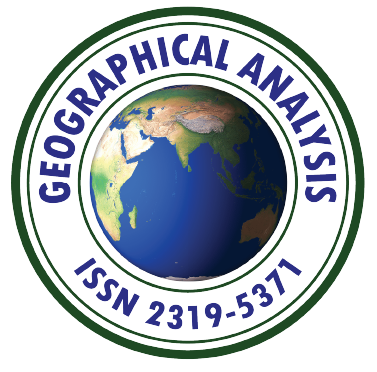
Geographical analysis
Department of Geography & GIS

Department of Geography & GIS

Geographical analysis
Year: 2019, Volume: 8, Issue: 1, Pages: 9-16
Original Article
V B Saviramath1, Sukumar A Kokatnur2
1Associate Professor, Department of Geography, Karnatak Science College, Dharwad
2Research Scholar, Department of Studies in Geography, Karnatak University, Dharwad
Received Date:23 February 2019, Accepted Date:18 May 2019
Water is most unevenly distributed natural resources on the earth surface. Many a time’s disputes arise between states and counties when they became unable to manage these resources properly. None of the rivers fallow political boundaries and many of them have their courses in two or three states. All states which share the water of a river want to utilise maximum extent. This is the main reason for conflict for water between states. Erratic nature of rainfall and frequent drought on the hand and increasing population, rapid urbanisation on the other hand enhancing the severity of problem. Karnataka state is fighting for its share in water of river which has their courses in adjacent states. Kalasa-Banduri water dispute one among such conflict. This project was undertaken by the government of Karnataka to improve drinking water supply to districts of Belagav.i, Dharwad, Gadag. Goa state is opposing Karnataka’s plan to divert 7 TMC water from Mahadayi River to the Malaprabha river basin. As the interim verdict of Magadayi water tribunal (2015) was against the interests of Karnataka various organisations have called for protest. As political leaders interfered for their selfish interest, people of Yamanur village were harassed by police through they have not committed any kind of crime. Thus, the present study makes an effort to analyse the causes and effects of the horrific incident and view Kalasa-Banduri project from the perspective of Yamanur villagers.
Keywords: KalasaBanduri; Dispute; Interim verdict; Protest; Harassed
© 2019 Saviramath & Kokatnur. This is an open-access article distributed under the terms of the Creative Commons Attribution License, which permits unrestricted use, distribution, and reproduction in any medium provided the original author and source are credited.
Published By Bangalore University, Bengaluru, Karnataka
Subscribe now for latest articles and news.